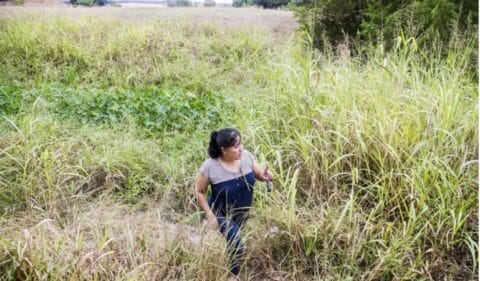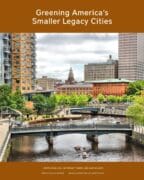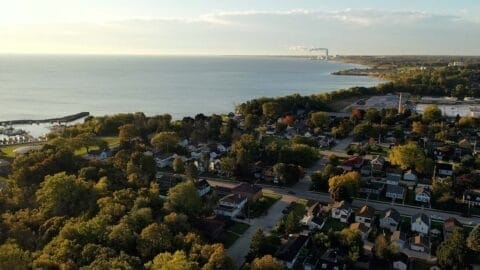Community-led Climate Action
Whether responses to climate change are mitigative or adaptive, they often carry secondary impacts or unintended consequences that are seldom adequately considered and disproportionately target historically marginalized communities. Land use planning, policy, and processes must equitably respond to climate change, and community voices should play a critical role in decision-making. We work with trusted community partners, in the United States and elsewhere, to support community-led planning and decision-making on topics such as climate-induced migration and climate gentrification. In doing so, we better understand what people need to successfully adapt and improve their resilience to climate change and make needed systemic change in policy and practice. Our work focuses on producing policy-relevant research and publications, facilitating networks of experts disseminating tools and analysis to support effective decisions, and informing policy debates to create more equitable processes.

Climigration Network
The Climigration Network brings community leaders and practitioners together to generate equitable, just, community-led approaches to relocation for people most affected by the worsening impacts of climate change—those who now find it impossible to live safely in place.
Learn More
Uprooted: As the Climate Crisis Forces US Residents to Relocate, a New Conversation Emerges
As floods, wildfires, hurricanes, and other disasters escalate due to climate change, experts from the Natural Resources Defense Council (NRDC) to the US Government Accountability Office now widely recommend that municipalities move homes and infrastructure out of hazard-prone areas to save lives and money. But how can such relocation avoid gentrification and displacement, honor the culture and history of the original residents, encourage a shift from reactive to proactive planning, and ensure that exiles can find safe, affordable places to live?
Read the Article
Greening America’s Smaller Legacy Cities
This Policy Focus Report investigates how local governments in small and midsize older industrial cities can adopt and implement comprehensive sustainability initiatives. It explores three principal policy areas—climate resilience, environmental justice and equity, and green economic development—and shows how their integrated application can serve as the policy foundation for what American scholars call green regeneration.
Read the Policy Focus Report
Exploratory Scenario Planning for Climate In-Migration
This guide describes exploratory scenario planning techniques that communities can use to develop neighborhood, city, and county scale plans. It also envisions several scenarios for managing population decline and vacancy while anticipating the possibility of future growth and development that is economically and ecologically sustainable, and socially just.
Read the Working Paper
Consortium for Scenario Planning
As part of our mission to equitably advance the field, the Consortium for Scenario Planning hosts a variety of publicly available resources on scenario planning’s history, practice, and future. To request or recommend an addition to this library, contact us.
Learn More
Toward the Next Mode of Practice for Climate Urbanism
In contemplating the next mode of practice for green climate urbanism, this report lays out the state of research on the sociospatial dynamics that characterize and drive “green gentrification” and examines what those dynamics mean for climate action in cities.
Read the Working Paper


